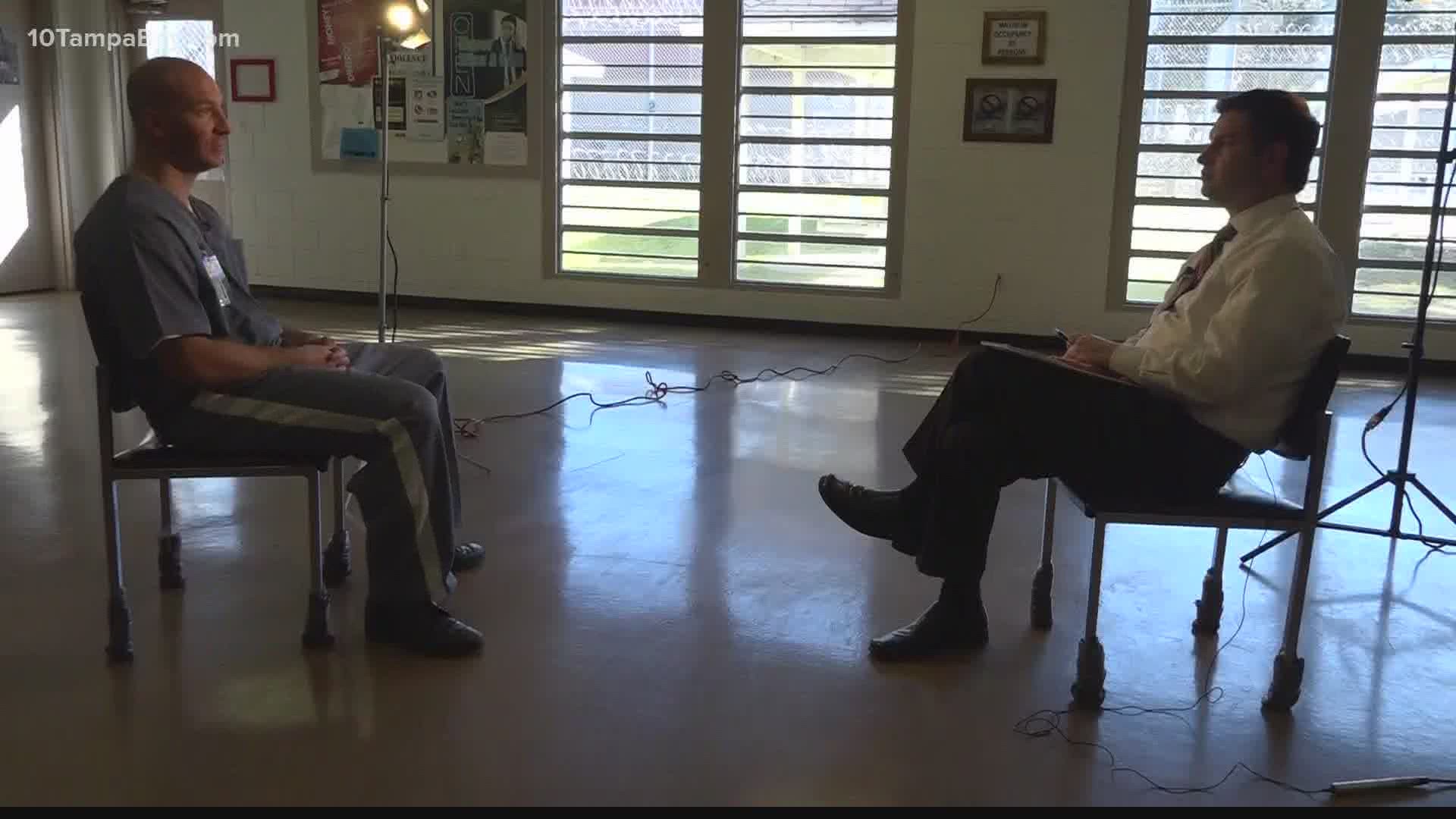POLK CITY, Fla. — It’s the ultimate quarantine -- prison. Think 14 days of social isolation is bad? Imagine 20 years, behind bars in a state prison, unable to come or go.
That was the sentence Erik Weyant got under Florida’s controversial 10-20-Life law. He fired a gun into the air after a group of men surrounded his car and even though no one was shot or even hurt, he was sentenced to two decades behind bars.
Now, Weyant is facing a new battle – to stay healthy in the Polk Correctional Institution near Polk City where we first visited him back in 2016.
The state prison ranks No. 5 for the most cases of COVID-19. Weyant’s mother told us over the phone Wednesday that she’d just talked to her son last weekend when he told her only a few people were sick. Since then, she was shocked to learn the prison is now up to 180 cases.
“Oh no! I can’t believe that,” said Weyant’s mom, Linda.
Last week, the governor extended the ban on any prison visitors, but experts say it's often prison workers who bring the illness inside.
“Invariably, because they're in a closed environment these cases are brought in from the outside,” said Dr. Joy Jackson of the Polk County Health Department. “And that brings up a point, that although most spread of COVID is from people who are sick and symptomatic, there can be some asymptomatic and pre-symptomatic exposures that lead to transmission.”
In a statement from the Florida Department of Corrections, a spokesperson says all inmates and staff have been offered COVID-19 testing, meals have been moved into the inmates’ individual dormitories, temperatures are checked throughout the day and everyone has been issued a cloth face covering.
An additional five symptomatic inmates have been placed in medical isolation… awaiting test results.
The good news, according to the state, not many staff members have tested positive yet -- only five so far. But as numbers across Polk County continue to climb there is concern they too could become infected.
For that reason, Jackson says health departments are prioritizing testing and contact tracing for those working in high-risk settings to protect the rest of the area from further community spread.
“Any individuals that work in those environments, that obviously live in the community, we want to know about those folks to make sure that they’re not testing positive so they can be isolated and their close contacts are not exposed.”
- Florida confirms another 9,989 COVID-19 cases in one day, reports 48 more deaths
- Florida Gov. Ron DeSantis extends state of emergency for another 60 days
- Hillsborough County Public Schools will require students and staff to wear masks
- As coronavirus hotspots in Florida stop reopening, will areas in Tampa Bay do the same?
- High levels of COVID-19 have been found in Florida sewage, but a local spill hasn't been tested
- Police: Human head found by jogger in St. Petersburg
- Graves may be under Tropicana Field, mayor's office says
- New hurricane season forecast predicts 20 named storms, 9 hurricanes
- Police: 7-year-old Florida boy dies after being shot
- Doctors rank which activities create the most risk for getting COVID-19
►Stay In the Know! Sign up now for the Brightside Blend Newsletter



